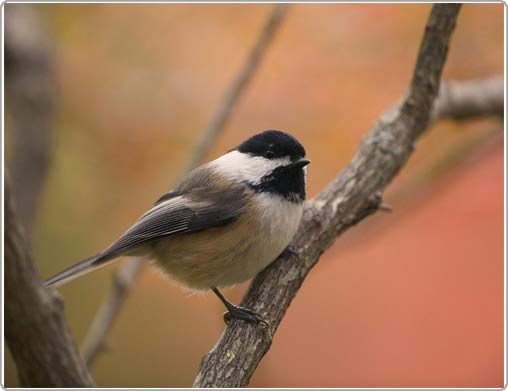Birds change their voices to survive in the city
The song of corn finches in cities has a faster rhythm and a higher pitch than those living in the forest, the Dutch scientists said.
This finding helps us understand why some birds still live in forests near the city while many species disappear.
Initially, Hans Slabbekoorn and Ardie den Boer-Visser, two animal behavior experts at the University of Leiden (Netherlands) only wanted to find out how the noise in Cameroon's forests affected the singing of birds. He said the noise in the forests near the cities also caused similar effects to tropical forests. But then what was collected helped them to discover another interesting thing.
Singing is very important for males when they need to find a mate and deter those who intend to invade the territory. If the noise in the city drowned out the birds' song, they would disappear from those places, explained Slabbekoorn. A recent study shows that noise affects the sex life of birds.

Corn finches (Photo: harvard.edu)
The object that Slabbekoorn and Boer-Visser choose to learn is corn finches, one of the most popular birds in Europe. They traveled around Europe with cars and bicycles to record the song of corn finches in 10 forests and centers of the 10 major cities nearby - from the foot of the Eiffel Tower in France to the forest for a long time. Buckingham station in England.
After comparison, Slabbekoorn found the song of corn finches in all 10 cities shorter and more rhythmic than their counterparts in forests. The song of the birds living in the city also has a higher frequency, apparently to drown out the roar of the traffic in the inherently low-frequency city.
"Corn finches are lucky when they know how to change the pitch of the song, because they can stay in the city so many other birds have to leave , " said Slabbekoorn.
Viet Linh
- Why do women often have higher voices and voices than men?
- 2500 species of birds may become extinct because of climate change
- The phenomenon of mysterious dead birds in China
- The cause of men 'stimulating' when hearing a weak voice
- Birds fly faster due to climate change
- Men voiced a deep lie
- America is bewildered by ... drunken birds
- Urban birds are more aggressive than rural birds?
- Study bird brain to solve questions about speaking ability
- Ho Chi Minh City still temporarily allows breeding birds
- Birds never ... fly
- Whales are capable of mimicking human voices
 Animal 'suffering' after hibernation
Animal 'suffering' after hibernation Why do goats climb well?
Why do goats climb well? Scientists were surprised to see chimpanzees eating turtles
Scientists were surprised to see chimpanzees eating turtles Giant catfish died deadly due to drought in Thailand
Giant catfish died deadly due to drought in Thailand